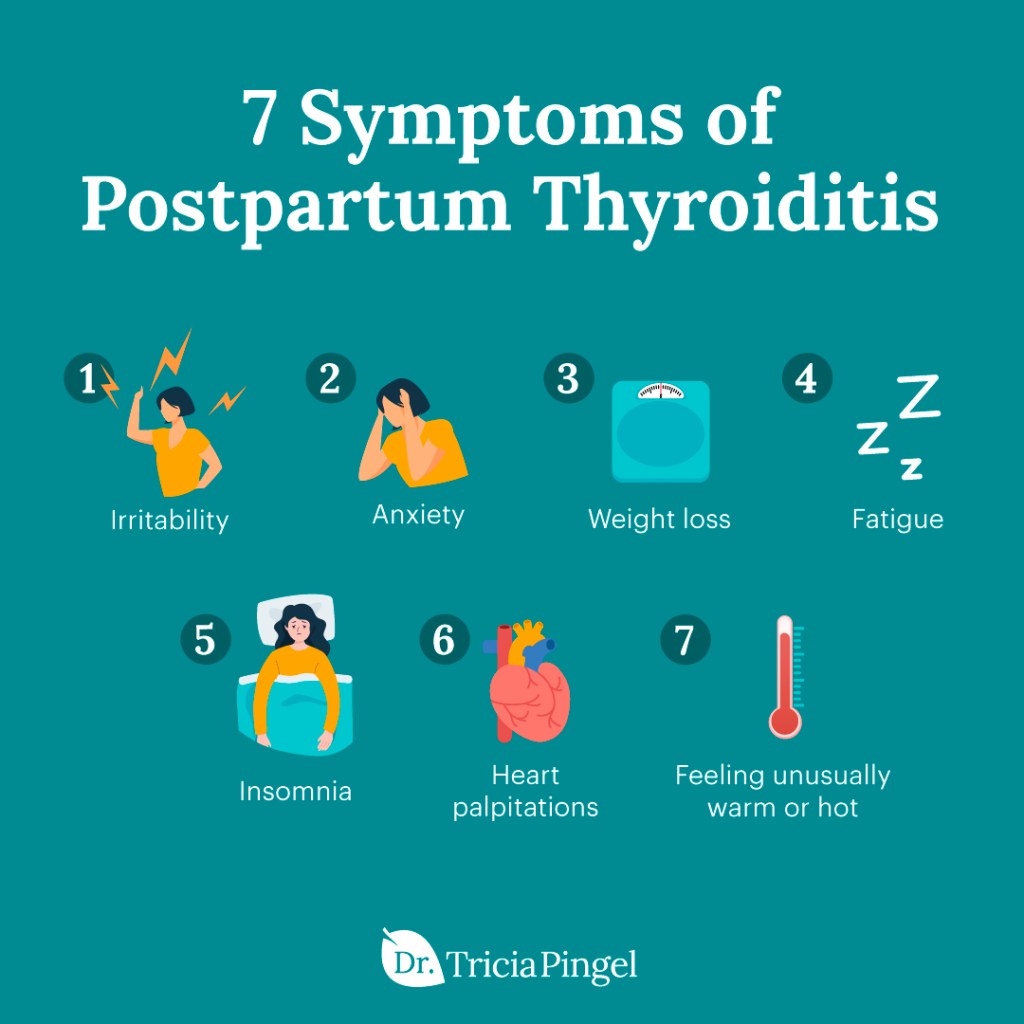I’ve seen it happen many times over the years: postpartum thyroiditis—or a change in your thyroid function after pregnancy. And many people have reached out to me with questions about this very topic.
So, I’d like to discuss why this happens, the top symptoms, and what the treatment options are. It’s often confused with postpartum stress, which means it can be missed for quite some time, so it’s important to identify the signs as quickly as possible.
Keep reading to learn everything you need to know.
As you may recall, your thyroid is a butterfly-shaped gland located at the base of your neck. It plays an important role in helping your body to maintain your skin, bones, nails, metabolism, and more.
I call the thyroid a “compensation organ” because it’s known to step in to help when other hormones in your body aren’t working to their full capacity. Accordingly, it adapts to the situation surrounding it.
Now, thyroiditis occurs when there is an imbalance in thyroid hormones. There are two types of thyroiditis: hypothyroidism and hyperthyroidism. Hypothyroidism means your thyroid is underactive, while hyperthyroidism means it’s overactive.
Traditionally, postpartum thyroiditis was commonly believed to be a rare condition, but we now know that it occurs in about 5 percent of new mothers. The condition happens when a thyroid known to previously function normally suddenly becomes inflamed within a year after childbirth. [1]
Postpartum thyroiditis is believed to stem from subclinical thyroiditis, which is mild. As a result, bloodwork may not reveal the issue before you give birth. But pregnancy can “aggravate” subclinical autoimmune thyroiditis, resulting in different types of thyroid dysfunction.
Physicians have found that postpartum thyroiditis can resolve itself or result in permanent thyroiditis.
Research has shown that of the women who develop the transient condition, 32 percent have short-term hyperthyroidism, 43 percent have short-term hypothyroidism, and 25 percent have short-term hyperthyroidism followed by short-term hypothyroidism. [2]
One of the hallmarks of postpartum thyroiditis is the fact that it’s associated with the presence of antibodies to thyroid peroxidase (TPO). TPO is an enzyme in your thyroid gland that aids in producing thyroid hormones.
Interestingly, TPO antibodies decrease throughout pregnancy. But studies have found that women who maintain a high level of TPO antibodies in late pregnancy, specifically the third trimester, have an 80 percent risk of developing postpartum thyroiditis. [3]
Now that you know more about what postpartum thyroiditis is and how it occurs, let’s take a look at the top symptoms.
Here are some of the most common symptoms of postpartum thyroiditis.

Because the symptoms of postpartum thyroiditis and postpartum stress have quite a bit of overlap, it can be easy to misdiagnose yourself with one or the other. That’s why it’s important to visit your physician if you’re displaying any of the symptoms above within a year of giving birth.
Your doctor will consider a few different factors before reaching a diagnosis:
While most women with postpartum thyroiditis don’t require treatment, research has shown that long-term treatment is necessary for up to 20 percent of all cases.
Your physician will likely continue to screen your thyroid hormone levels on a regular basis during treatment. And while treatment varies from case to case, you may find that you want to try some all-natural methods before turning to synthetic treatment.
Check out my 5 Natural Steps to a Healthier Thyroid to learn about ways you can help support your thyroid health. And if you suspect you may be dealing with postpartum thyroiditis, share this information with your doctor to discuss the best route for you.
Just remember that you aren’t alone, that there is hope, and you don’t have to deal with these symptoms forever!